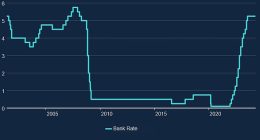ONE tech expert has warned about deepfakes that can scam victims out of their money.
Scammers have been using artificial intelligence technology to duplicate the voices and faces of unsuspecting victims.
This is known as a deepfake and is usually employed by bad actors to extort money from victims.
Specifically, deepfakes are used in phishing scams, identity theft, and financial fraud.
The World Economic Forum (WEF) estimates that deepfake videos are increasing at an annual rate of 900%.
Amit Gupta, Vice President of Product Management, Research, and Engineering at cybersecurity company Pindrop, explained to the U.S. Sun that deepfakes are a growing source of concern for tech experts.
A study conducted at Pindrop found that people were only able to identify a deepfake with 57% accuracy – just 7% better than a coin toss.
Still, the chances of falling victim to a deepfake crime depends on multiple factors, Gupta explained.
“Individuals who are less aware of the existence and sheer capabilities of deepfake technology might be more likely to fall for a deepfake crime,” he said.
Pindrop found that awareness can be driven by both income and age – 56.5% of US adults with income less than $50,000 annually know about voice clones, and 43.6% know about deepfakes.
Most read in News Tech
“When looking at individuals with over $125,000 in annual income, awareness levels increase to 75% and over two-thirds, respectively,” Gupta added.
Another factor that plays into the likelihood of falling victim to deepfakes is exposure risk.
For example, individuals in high-profile positions, such as politicians or celebrities tend to “face a higher risk due to the greater impact of their manipulated public image,” Gupta added.
However, as deepfake technology becomes more accessible, we will likely see more deepfake-related crimes, experts say.
Gupta revealed that his biggest concern regarding the technology is the potential that deepfakes have to “manipulate people and spread misinformation on a massive scale” – this is especially the case as the US heads into an election year.
“We’re likely going to see an influx of highly realistic videos, audio recordings, and images of politicians and presidential candidates in the next 12 months, which raises concerns about the potential to sway public opinion and make them believe events, statements, or actions that never actually occurred,” he commented.
Another major concern shared by tech experts is cybersecurity threats.
For instance, deepfakes can be used to create convincing phishing attacks or to even go around security measures.
To combat these concerns, Pindrop has been developing tools for identifying deepfakes since 2015.
“The liveness detection provides protection not only for synthetically generated speech (text-to-speech, voicebot, voice modulation, voice conversion) but also for recorded voice replay attacks and modulated voices,” Gupta said.
These tools also provide an analysis with a real-time liveness score and a corresponding decision on whether the voice is real or fake.
HOW TO STAY SAFE
To help the individual at home stay safe from deepfakes, Gupta shared some tips with the U.S. Sun.
“Staying safe from cybercrime requires a combination of awareness, proactive measures, and responsible online behavior,” he said.
“Understand the risks and common types of attacks, use strong authentication with multi-factor authentication,” he added.
Multi-factor authentication (MFA) protects your accounts by requiring an extra level of verification before logging in – such as a text confirmation.
It’s also important to stay wary of communication from unknown sources.
Read More on The Sun
“Fortify the systems and devices with security software, be careful with personal information, and use caution when sharing with anyone or on social media – avoid sharing sensitive information, such as passwords or financial details, over unsecured channels,” he said.
“Also, one of the most effective measures you can take is to leverage good technology against ‘bad’ technology or technology being used by bad actors,” he added.










